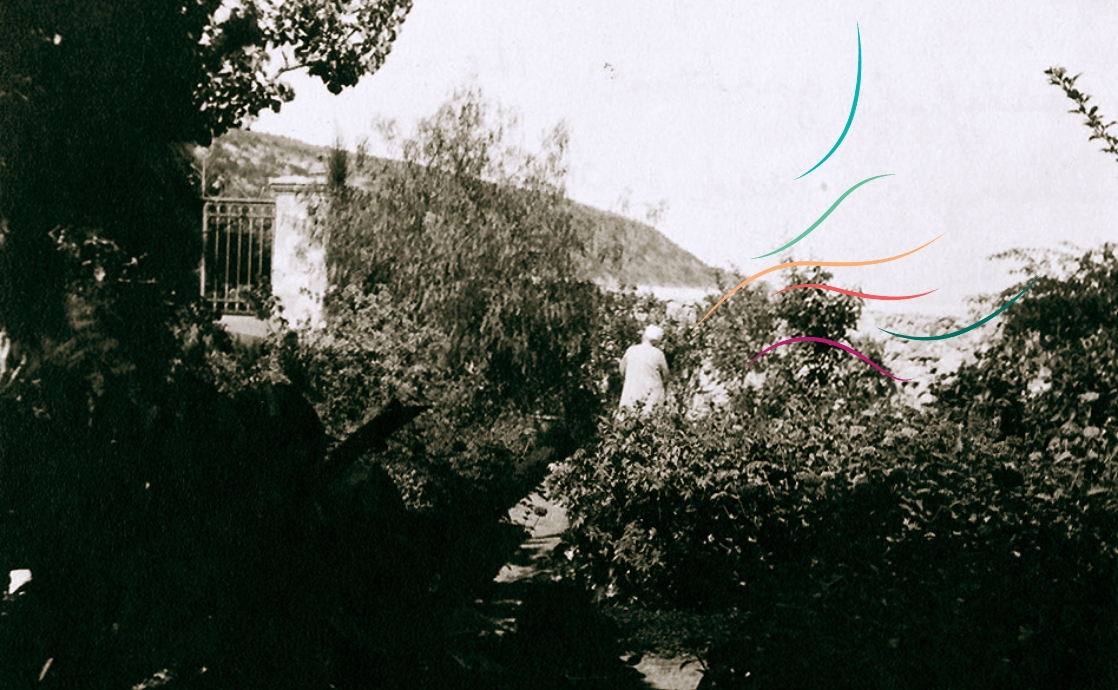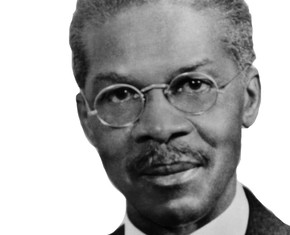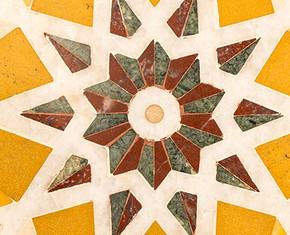The views expressed in our content reflect individual perspectives and do not represent the authoritative views of the Baha'i Faith.
A hundred years ago today, on November 27, 1921, the leader of the world’s Baha’is, born Abbas Effendi and fondly known everywhere as Abdu’l-Baha – the “servant of the glory” – passed away.
He looked forward to his passage to the next world, and advised others to see it that way, too:
At first it is very difficult to welcome death, but after attaining its new condition the soul is grateful, for it has been released from the bondage of the limited to enjoy the liberties of the unlimited.
RELATED: The Extraordinary Life of Abdu’l-Baha
Although it may seem odd to attempt to tell the story of his earthly life by starting at its end, recounting Abdu’l-Baha’s passing and funeral offers a fitting summary of his enormous and ongoing impact on humankind.
The son and successor of Baha’u’llah, the prophet and founder of the Baha’i Faith, and the Center of his continuing Covenant, dearly loved and revered around the world for his service to humanity and his tireless advocacy for peace and unity, knighted by the British Empire for his work feeding the poor and averting famine in Palestine during World War I, and the true exemplar of what it means to be a Baha’i for millions around the world, Abdu’l-Baha left an astounding, immortal legacy.
Today people from every country, class, and creed attempt to model their lives after his.
This has never happened before. While millions attempt to emulate the lives of the great prophets and founders of religions, Abdu’l-Baha was not a Divine messenger like Christ or Buddha or Baha’u’llah – he was instead the son of a prophet and the embodiment of every Baha’i ideal.
During Abdu’l-Baha’s years on this plane of existence, he fulfilled a unique and unprecedented role in the long annals of religious history. He is described, in the foreword to Baha’u’llah’s Most Holy Book, as:
… the Exemplar of the pattern of life taught by His Father, the divinely inspired authoritative Interpreter of His Teachings and the Centre and Pivot of the Covenant which the Author of the Baha’i Revelation made with all who recognize Him.
That brief description, written by the democratically-elected global leadership body of the Baha’i Faith, the Universal House of Justice, only begins to summarize the individual and his incredible impact.
Abdu’l-Baha, a prisoner and an exile for most of his life, never let his imprisonment embitter him or compromise his joy, his love, or his service to humanity. Instead, he worked without ceasing, throughout his entire life, even while confined under harsh conditions, to bring about a truly worldwide community of people willing to altruistically sacrifice their own well-being for the unity of humanity. He said:
It is your duty to be exceedingly kind to every human being, and to wish him well; to work for the upliftment of society; to blow the breath of life into the dead; to act in accordance with the instructions of Baha’u’llah and walk His path – until ye change the world of man into the world of God.

When Abdu’l-Baha passed away at 1:00 a.m. on November 27, 1921, it unleashed a torrent of profound distress and grief, not just for the Baha’is around the world but for everyone who knew him or knew of him. People from every religion and no religion deeply mourned. Remarkably, Abdu’l-Baha’s funeral service brought together even the divided Holy Land, drawing admirers from every religion, race, age, background, class, and walk of life. A deep, profound sense of loss and grief gripped those who attended, and its great intensity united them.
Abdu’l-Baha’s impact on the world, and the outpouring of emotion that accompanied his death, resulted in a completely unprecedented funeral. He was memorialized and laid to rest on Tuesday, November 29th, 1921, in the Shrine of the Bab on the slope of Mount Carmel in Haifa, Palestine. Thousands upon thousands of people walked up the steep mountainside following his casket. “A great throng,” the British High Commissioner of Palestine wrote, “had gathered together, sorrowing for His death, but rejoicing also for His life.”
The Governor of Jerusalem said “I have never known a more united expression of regret and respect than was called forth by the utter simplicity of the ceremony.”
Media observers estimated more than ten thousand people attended. The huge throng, never before assembled in the Holy Land, spanned a remarkable diversity of humanity: Arabs, Turks, Persians, Kurds, Armenians, Europeans, Americans, Jews, Catholics, Orthodox Christians, Anglicans, Druze, Muslims, and Baha’is, government officials and clergy and the wealthiest and the poorest, all there to show their abiding love and respect for the towering figure one newspaper called “The Personification of Humanitarianism.”
RELATED: Learning from Abdu’l-Baha’s Commitment to Service
Mourning, moaning, and lamenting, the surging crowd collectively felt such a deep sense of loss that many attendees struggled mightily with their emotions. The sounds of sobbing and weeping filled the air. The mourners wept because they had lost someone so unique and so humble, so wise and selfless and dedicated to the service of others, that they feared they had lost something irreplaceable, something enormously precious, not just a man but a truly heroic and transcendent soul.

Their sorrow was understandable. Many in that gigantic crowd literally owed their lives to Abdu’l-Baha, either for the generous donations he had given the poor for decades, or for the grain he had stored to feed the starving people of Palestine during World War I, or for his long history of tending to the sick, the destitute, and the homeless, or for the kind spiritual counsel he had given to everyone.
If the old saying that you can judge a man by his funeral is true, then Abdu’l-Baha’s interment produced one of the most spontaneous, profound, and public outpourings of affection, warmth, and tenderness the Holy Land had ever seen — proving Abdu’l-Baha’s teaching that love lasts forever.
Tonight, in the wee hours of the morning, Baha’is everywhere will gather to pray and commemorate the remarkable life and lasting legacy of Abdu’l-Baha, the incarnation of every Baha’i virtue.
Next: The Astounding Life of Abdu’l-Baha


















Comments
Sign in or create an account
Continue with Googleor